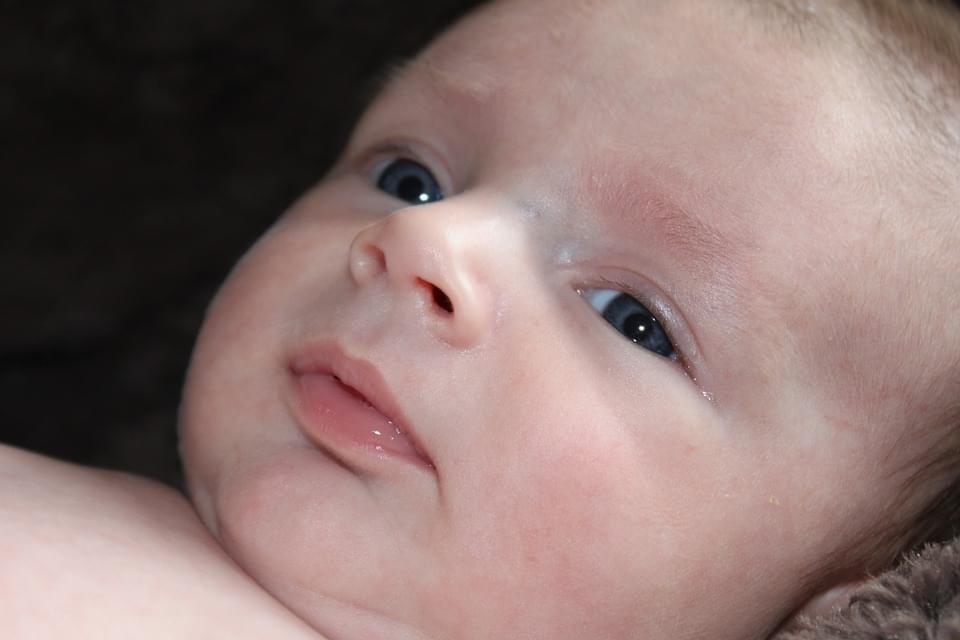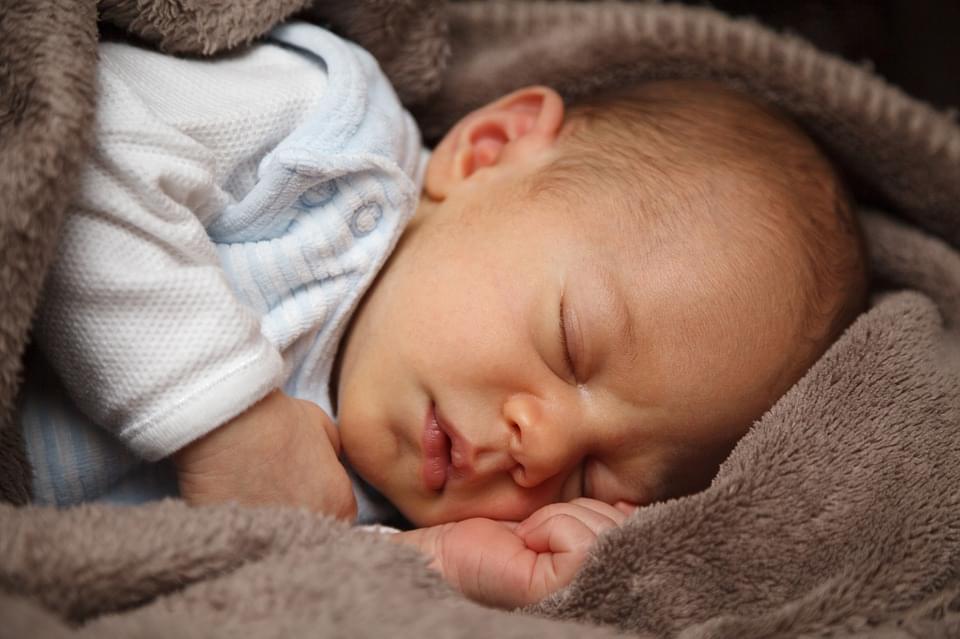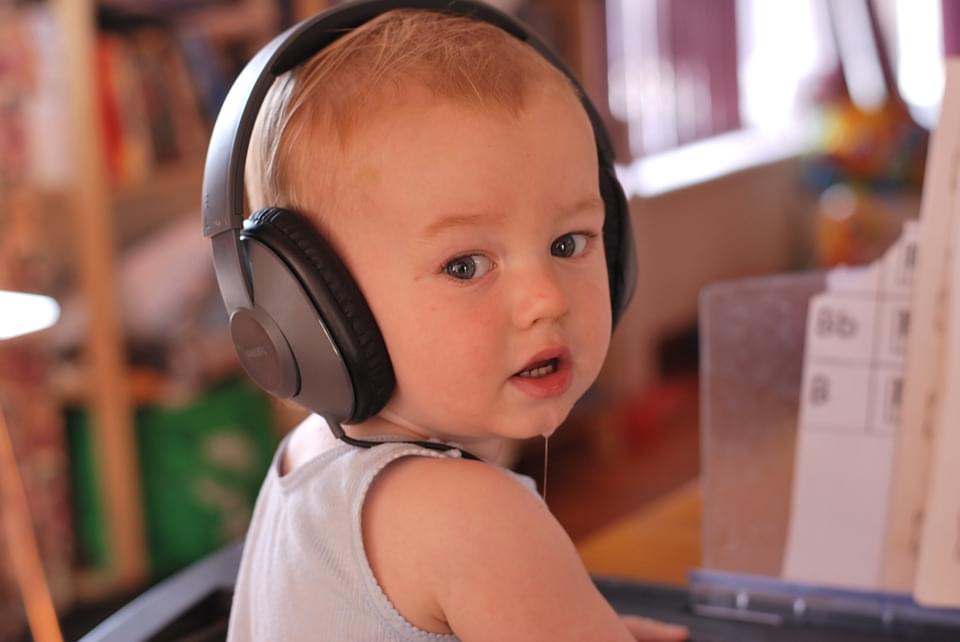If your baby fights sleep, you're not alone.
This is one of the most common and frustrating dilemmas that the parents of young children face.
However, you will have some control over it.
If you can understand why the baby keeps fighting sleep, it should be easier for you to tackle a wide range of different problems involving the baby in general.
Why the Baby Fights Sleep
There are lots of reasons why the baby fights sleep all day. Some of them are outside of your control, and some of them are not.
1. Your Baby is Very Young
Many aspects of sleeping are completely outside of anyone's control, and age is certainly one of them.
Babies under the age of 3 months are going to fight sleep more than most older babies and older children, and this is just partly the matter of their biology.
Unfortunately, a newborn fighting sleep is very common. It is one of the reasons why your first 3 months with a baby are going to be some of the most difficult.
Obviously, there isn't all that much you can do about this particular step. You can try to reassure yourself that it is going to be over before you know it, even if it doesn't feel that way at first.
Some of the other strategies that you can use with an infant fighting sleep might help, but you are probably always going to have more problems with a newborn baby when it comes to a baby not sleeping.
There are other biological factors that can influence whether or not a baby sleeps through the night easily.
The baby not sleeping through the night is probably not your fault, but believing that it is your fault is just going to add to the stress that you are experiencing during this difficult time.
It might be helpful to keep in mind some of the biological factors that are not entirely within your control.
2. The Baby Might Be Too Tired to Sleep
There's something almost paradoxical about the idea that a baby is going to be too tired to sleep, but as a new parent, you are probably used to dealing with behavior that seems baffling and contradictory.
This phenomenon occurs because your baby has managed to miss the crucial sleep window of the day.
If your baby is really tired, he or she is probably going to end up crying and you're not going to get your baby to sleep anyway.
However, if your baby is not sufficiently drowsy, he or she is certainly not going to go to sleep. You need to be able to find some sort of happy medium between the two of these extremes, and this is what is going to get you to fully work with your baby's sleep cycle.
This is one of the common reasons why a newborn fights sleep. It can be genuinely difficult to monitor your baby in order to figure out his or her sleeping patterns, but it is one of the things that parents are naturally going to learn when it comes to bonding with their babies.
3. Certain Pre-Bedtime Habits Might be Preventing the Baby From Sleeping
You might be doing any of the following things for helping the baby sleep, including feeding the baby, rocking the baby, driving the baby around in a car, walking the baby around, and reading to the baby.
It's understandable that you might want to do all of these things, and some of them might even work in the short-term. However, these are ultimately not going to help if the baby keeps fighting sleep.
For one thing, it is going to be difficult for you to be able to establish any sort of a routine built around any of these habits, and that is going to have an effect on whether or not the baby is going to fight naps and sleeping in general.
Almost all of these habits are going to work to make the baby more stimulated, and this is one of the primary reasons why the baby fights sleep in general.
You are activating multiple biological systems when you do any of these things, and getting the baby to sleep is all about getting the baby calm inside and out in many ways.
4. The Baby Might Be Too Stimulated to Sleep
You don't have to be a baby to know what this is like.
We all have been in states where we would probably be tired, but we're wired by something. We might be wired with excitement or stress, but either way, the emotions are interfering with our sleep cycles.
Babies are absorbing so much information at once in this crucial period of development that this is going to be happening to them at an accelerated rate. As such, they are going to be even more prone to over-stimulation than adults.
As an adult, you have also learned some psychological coping mechanisms for over-stimulation that are currently beyond your baby.
5. Babies Vary in Personality and Some Babies are Naturally More Inclined to Fight Sleep
As a new parent, you are often told that almost all aspects of your baby's behavior are within your control.
Behaviorism was a psychological discipline where people had a tendency to believe that all of personality was shaped by a person's behavior and environment and could be altered by a person's behavior and environment.
Behaviorism has been discredited, but some of its ideas live on culturally, and people often seem to believe in some behaviorist tenets when they are talking about babies.
Some adults are just not big sleepers.
Some adults are night owls who have a tendency to naturally function on less sleep, and some adults manage to become big sleepers even when they are well past the over-sleeping days of adolescence.
In many cases, those adults followed those same patterns when they were newborn babies.
Some Aspects of Your Baby's Personality Are Beyond Your Control And That's Not a Bad Thing
You can't control every aspect of your baby's personality.
It is possible that the tendency to sleep or over-sleep is just genetic, and it seems to be a largely benign natural personality variation.
If your baby fights naps or if your baby fights sleep at night, you might be able to reduce those tendencies, but your baby might always be a somewhat difficult child in that regard.
Parents often feel responsible for everything that happens to their children. However, not all variation in human personality is directly caused by the parents.
If people are blaming you for the fact that your baby can't get to sleep in time or if you are blaming yourself, try to remember that normal personality variation is going to happen and it's not a bad thing.
What To Do if the Baby Fights Sleep?
Many of these methods are going to have plenty of other benefits as well, although the benefits of getting the baby to go to sleep will speak for themselves.
1. You Can Try to Get a Nap Routine Established
You should try to find a way to make almost all aspects of a baby's sleep cycle routine, at least as much as you can. Babies are hard to predict and hard to schedule.
However, putting some aspects of a routine into place can really make a difference.
If you have a certain set of repeated patterns for getting the baby to sleep, that can be enough. Even if it's a simple matter of singing the exact same gentle lullaby in the same way each time, it can help a baby get into the right emotional state.
Very young children are creatures of habit and they are highly sensitive to the emotions of their parents, and this sort of thing can still make a difference even if it doesn't have any guarantees attached.
2. Playing White Noise For Your Baby That Is Fighting Sleep
It should be noted that baby sleep music has been helpful for some parents when it comes to getting the baby to sleep.
However, it is important to play the right baby sleep music and use the right sounds.
Playing white noise for a baby is probably going to help him or her sleep more effectively than playing a lot of other forms of sound.
If you are worried about using white noise, you should know that most of the studies that are negative towards using this strategy are flawed and highly contested.
White noise has been used successfully by many parents when it comes to getting babies to sleep, assuming that it is continuous and that it is lower than 50 decibels or so.
You don't have to buy an expensive machine, either, since there are now white noise apps that you can download to your smartphone for free.
White noise is not a healing panacea, but it might manage to help you get your baby to sleep in some of the toughest instances.
If you are having a hard time with some of the other strategies, then you are going to want something that you can point to as a solution in order to gain a feeling of control.
Having white noise available as an option can certainly help.
3. You Can Try to Stop Your Baby From Becoming Too Stimulated to Sleep
You can try to prevent this problem by making sure that the baby is not too stimulated just before nap time or bed time.
Obviously, most parents today are trying to make sure that their babies are as intellectually and emotionally stimulated as possible, and this is a good thing.
Babies that bond with their parents more in all ways are going to have much better outcomes in every category.
However, you can always try to do this throughout the day and not just before your baby needs to start sleeping.
Reading to your kids before bedtime is probably going to work better for slightly older children.
Save the classical music and other forms of intellectual stimulation for when your baby is going to be awake for a long time.
Conclusion
Your baby will be fighting sleep for a lot of reasons.
Some of these reasons are largely outside of your control. Some of these reasons are within your control.
Try to focus on what you can do and try not to blame yourself for the rest of it.
Remember that this stage of your baby's life is also fairly brief and the two of you are going to get through it together.
[su_spoiler title="Sources" icon="plus-circle" class="sources-links"]
- http://www.webmd.com/parenting/baby/tc/quick-tips-getting-baby-to-sleep-get-started#1/
- http://www.babysleepsite.com/sleep-training/why-do-babies-fight-sleep/
- http://www.mybabysleepguide.com/2012/12/should-my-baby-sleep-with-white-noise.html
- https://www.preciouslittlesleep.com/pediatrics-study-white-noise/
- http://www.secretsofbabybehavior.com/2010/05/why-do-some-babies-hate-being-drowsy.html
[/su_spoiler]



